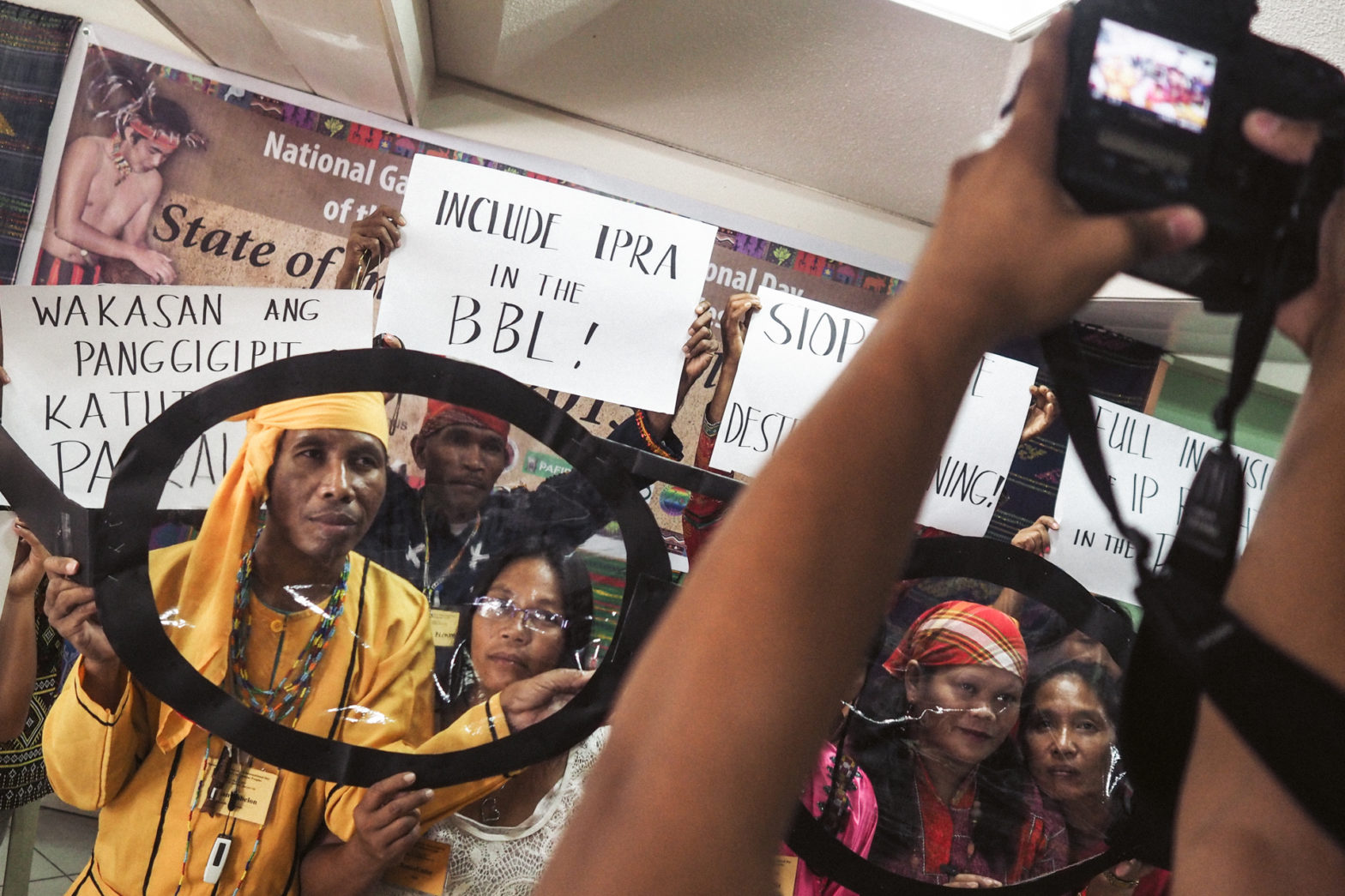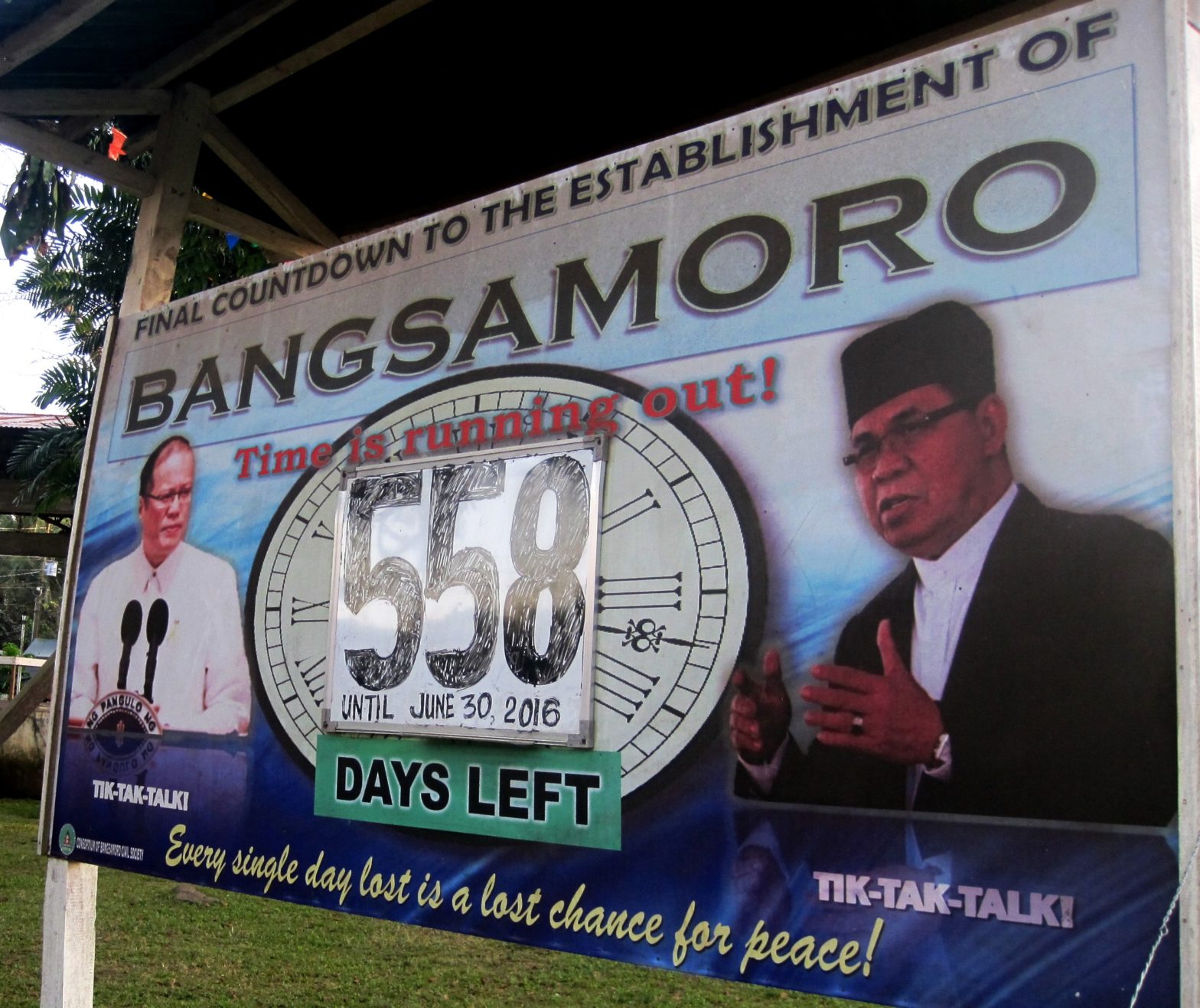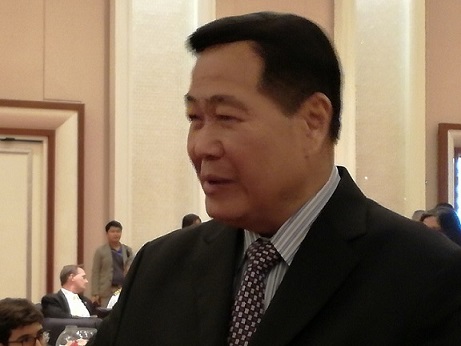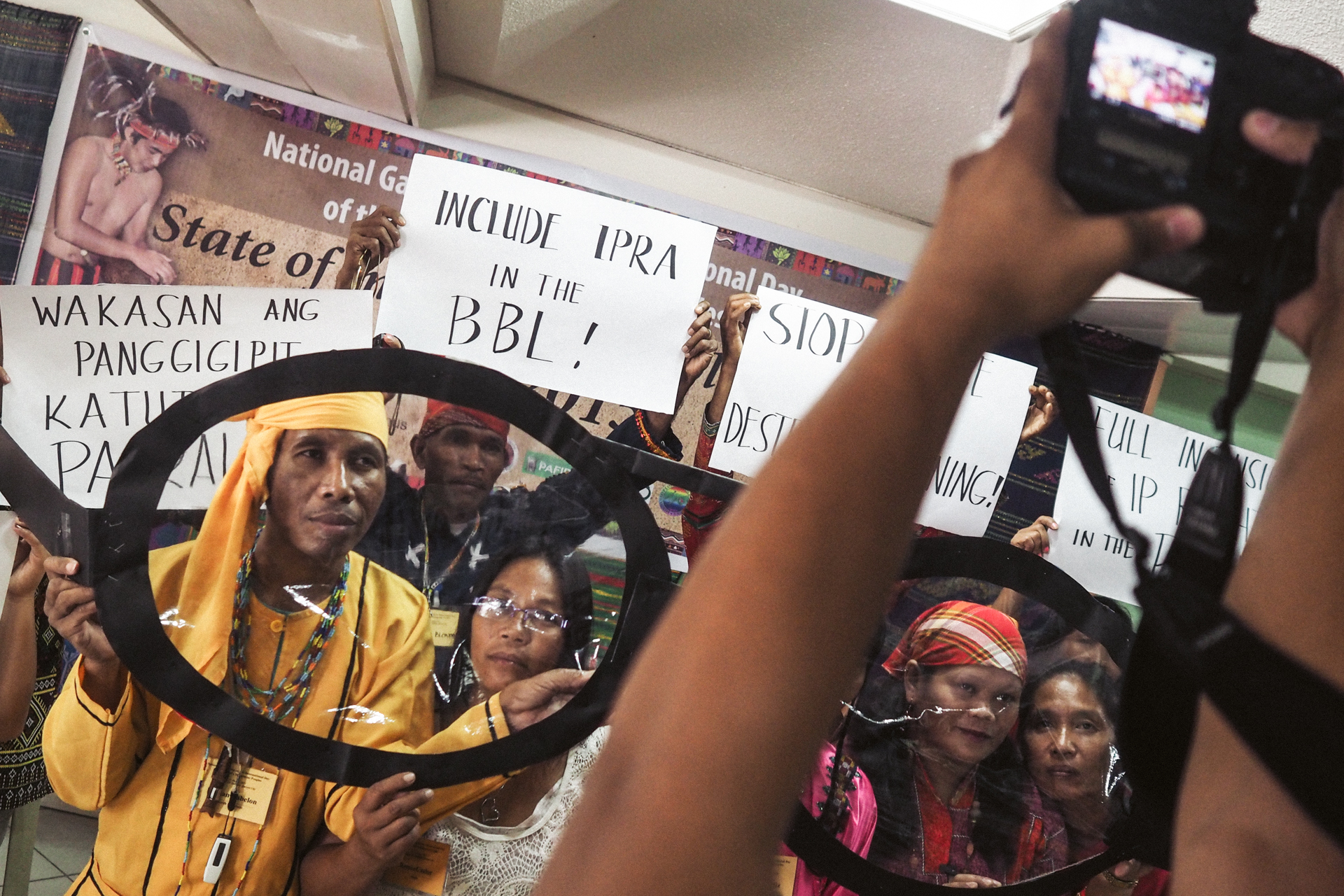
By JAKE SORIANO
WEEKS after President Benigno Aquino III in his final State of the Nation Address (SONA) urged the passage of the Bangsamoro Basic Law (BBL) during his last year in office, leaders of various indigenous peoples (IP) groups said the proposed legislation violates their rights and will lead to their “disintegration.”
“In its present form, the BBL recognizes only one Bangsamoro identity, a single ancestral domain, and self-determination only for the Bangsamoro people,”78 leaders from 38 IP communities nationwide said in their State of the Indigenous Peoples Address (SIPA).
“Subsuming the identity of indigenous peoples under a single Bangsamoro entity is tantamount to forced assimilation and internal colonization, which is prohibited under international law,” they said.
In particular, lawyer Jennifer Corpuz, human rights coordinator of Tebtebba, an IP policy research and education network center, issued the President a strong warning: “Gusto po ba ninyong maalala bilang pangulo na naipasa nga ang BBL, ngunit naging sanhi naman ng genocide at forced assimilation ng mga katutubo sa loob ng Bangsamoro territory (Do you want to be remembered as the president who passed a basic law that led to the genocide and forced assimilation of IPs in the Bangsamoro territory)?”
Asked what she meant by genocide, Corpuz told VERA Files, “(T)he indigenous peoples inside the territory —the Teduray, Lambangian and Dulangan Manobo —will disintegrate. They are forced to assume the Bangsamoro identity.”
In their SIPA, the IPs lamented what they called their “glaring invisibility”to the Aquino administration on such issues as land rights, mining, construction of dams, education and the peace process in Mindanao.
Their call to be included in the peace process adds to the many challenges that lie ahead of the BBL (See Beyond Mamasapano: Tough road still ahead for Bangsamoro peace).
The IP leaders said while they support the Moro struggle for peace and against oppression and historical injustice, they have gotten drawn into a conflict that is not theirs.
“We are caught in the crossfire between government armed forces and the MILF (Moro Islamic Liberation Front) because our ancestral domains are the unwilling hosts of armed conflicts,”the SIPA read.
“Now, we are also victims of peace and a peace process that does not want to include us and does not want to hear us,”it said.
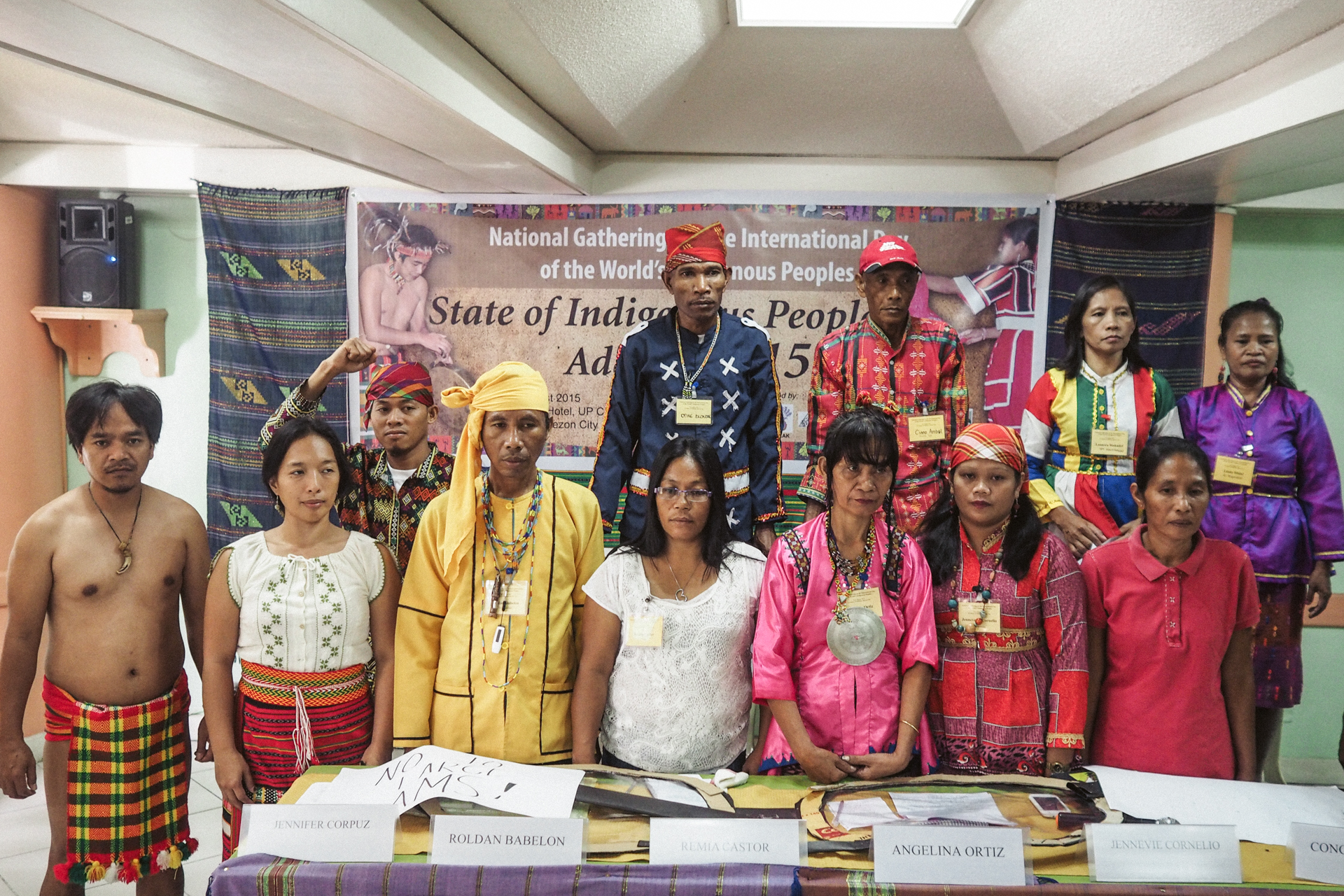
The MILF and the Philippine government ended 17 years of negotiations when they signed the Framework Agreement on the Bangsamoro (FAB) on Oct. 15, 2012 and the Comprehensive Agreement on the Bangsamoro (CAB) on March 27, 2014.
The BBL seeks to create a Bangsamoro political entity to replace the Autonomous Region in Muslim Mindanao (ARMM), and provide for its basic structure of government in recognition of the Bangsamoro identity and their right to self-determination.
Maguindanao is one of the provinces in the ARMM and would belong to the core territory of the Bangsamoro should the BBL be enacted.
But Jenevie Cornelio, a Teduray community leader, pointed out that the Teduray and Lambangian IP groups comprise the majority in three towns in Maguindanao.
In all, close to 300,000 Teduray and Lambangian live in 11 towns in Maguindanao.
“Non-Moro indigenous people po kami sa loob ng ARMM (We reside in ARMM but do not identify as Moro),”Cornelio said.
She called for the nondiminution of IP rights in the BBL and urged the government to implement the Indigenous Peoples Rights Act (IPRA) in the ARMM.
“Panawagan ko sa pamahalaan, wag naman po nyong isuko yung karapatan ng mga katutubo sa mga bagong batas (I call on the government, in crafting new laws, to not neglect the rights of indigenous peoples),”Cornelio said.
“Nang hindi naman maulit yung karanasan namin noong gi-struggle yung Autonomous Region in Muslim Mindanao (We do not want to see a repeat of our struggles in the ARMM),”she said.
IP rights in the BBL have been a highly contentious issue.
IPDEV, a project for the protection of IP rights in the ARMM, said the IPs and the Bangsamoro have identity and ancestral domain claims that overlap in territories but “are basically of different nature and character.”
“The position of the MILF which it consistently held in the peace negotiations is that there is only one indigenous people—the Bangsamoro in the Bangsamoro territory—and that all IPs share one Bangsamoro ancestral domain,”IPDEV noted in a report published on the Institute for Autonomy and Governance (IAG) website.
This position, “based on a historical narrative of kinship among all indigenous peoples and the collective struggle for self-determination by all the Bangsamoro irrespective of ethnic affiliation,”is distinct and broader than what is envisioned in such national laws as the IPRA.
On the other hand, non-Islamized IPs strongly assert an identity separate from the Bangsamoro identity, IPDEV said. They hold on to guarantees accorded to all IPs in the country by the Constitution itself and the IPRA, a law that provides claims to ancestral domain that is delineated by the grant of a title.
“Their basic position is that the (Bangsamoro) Basic Law must recognize their ancestral domain claim and must grant autonomy to the IPs within the greater autonomy of the Bangsamoro,”the IPDEV report read.
In a May 2014 policy speech delivered at the Shangri-La Edsa Hotel, MILF Chief Negotiator and Bangsamoro Transition Commission (BTC) Chair Mohagher Iqbal announced that a consensus has been reached on BBL provisions for IPs.
“The IP issue has been one of the most difficult and complex concerns I addressed as chair of the BTC,”said Iqbal.
The BTC drafted the BBL based on the FAB and the CAB. It submitted a working draft to the Office of the President in April 2014, which the OP in turn submitted to Congress in September that year.
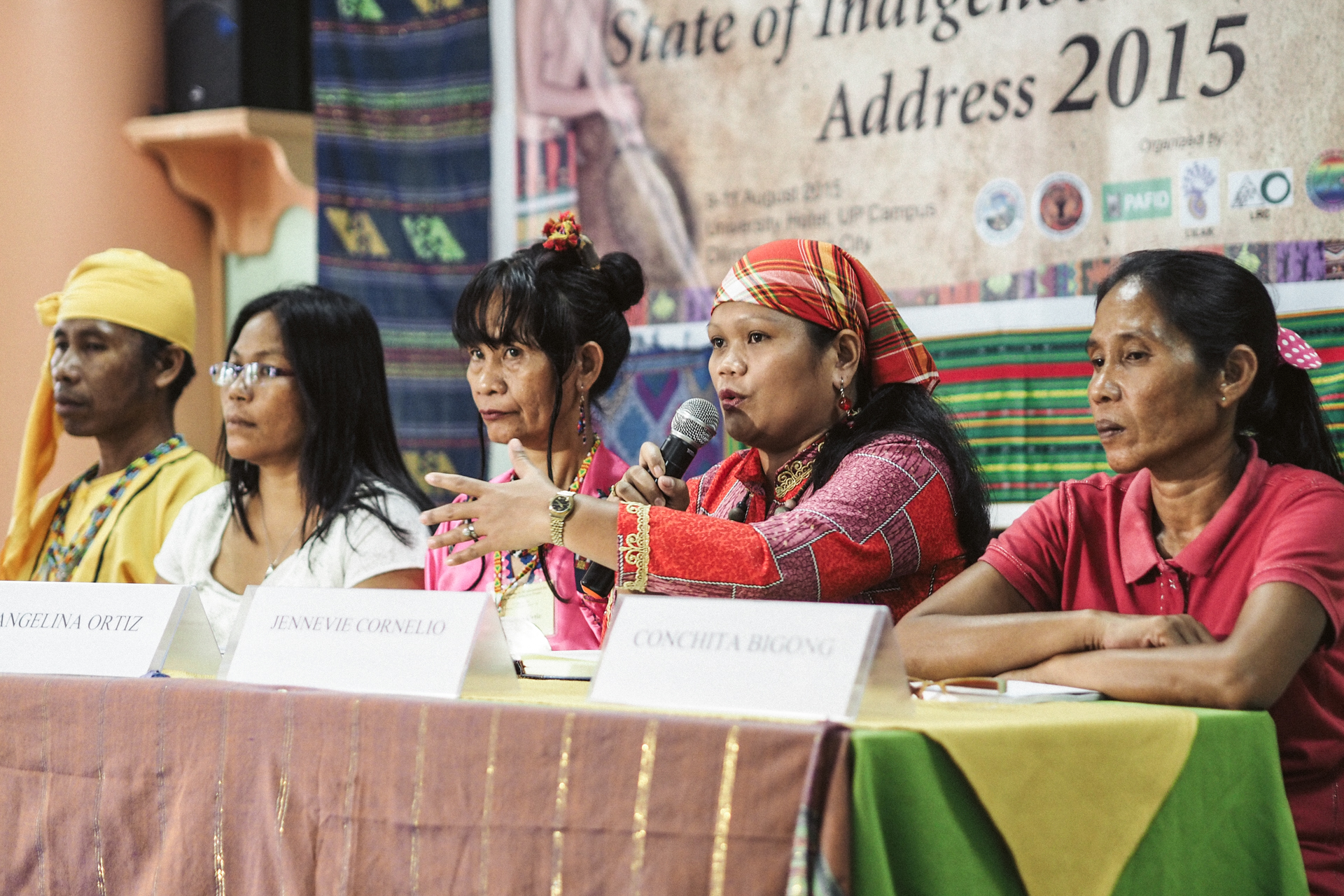
The draft was sponsored as House Bill No. 4994 and Senate Bill No. 2408.
“The draft BBL reiterates the obligation of the Bangsamoro government as provided for in the CAB to protect the rights of the IPs in accordance with the United Nations Declaration on the Rights of Indigenous Peoples,”said Iqbal in the same speech.
He said provisions of the BBL as drafted by the BTC, provide guarantees for the protection and promotion of the rights of the IPs in the Bangsamoro; are broadly formulated to allow the parliament enough flexibility to evolve full protection mechanisms; do not make any distinction as to Islamized and non-Islamized IPs to promote unity and kinship; and clearly establish the strong foundation for continuing dialogue between IPs and the Bangsamoro government.
“The IP provisions in the draft BBL provide only the general principles,”Iqbal said. “Mechanisms, structures and processes have to be fleshed out in regional legislations.”
“Give us the chance to prove that in the Bangsamoro, the IPs have a bright future,” he said. “This we will prove once the Bangsamoro is in place.”
HB 4994 has been substituted by HB 5811, the version adopted by the House Ad Hoc Committee on the BBL.
Last May, various organizations, including Tebtebba, issued a statement noting what it said were the deficiencies still in the Ad Hoc version. These include what they say are contradictory provisions that undermine the ancestral domain rights of non-Moro IPs as well as those that could effectively repeal IPRA provisions.
They approved of the amendment transferring issues that affect ancestral lands of non-Moro IPs from the exclusive powers of the Bangsamoro parliament to a concurrent power.
Yet, in the same statement, they accused the Aquino administration of betraying IPs by not including them in the peace process.
“The government has effectively sold out IP rights even at the onset of the peace negotiations,”the statement read. “At the heart of the demand for full recognition of IP rights is the identity of the non-Moro Indigenous Peoples. For without identity, it is as if their entire being is erased.”
Earlier this week, Sen. Ferdinand Marcos Jr. filed SB 2894, a substitute to SB 2408.
United Nations Special Rapporteur on Indigenous Peoples Rights Vicky Tauli-Corpuz, who was present in the SIPA event, said she would scrutinize the substitute bill to check if it adheres to the standards set by the UN Declaration on the Rights of Indigenous Peoples.
“Susuportahan natin ang isang batas na nagko-comply sa standards na nagpo-protect sa indigenous peoples rights (We will support a law that complies with standards that protect the rights of IPs),”she said.
In July, the BTC issued back a resolution appealing to members of Congress to pass the BBL in its original form, saying it is the “most appropriate version,”and consistent with the peace deal the Philippine government signed with the MILF.
